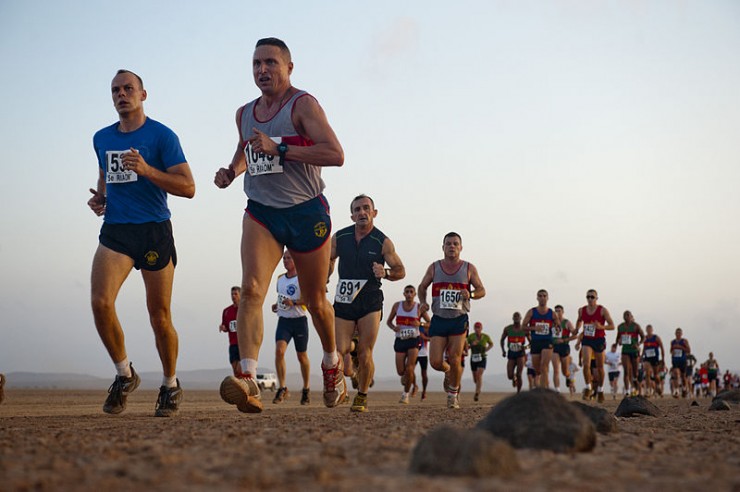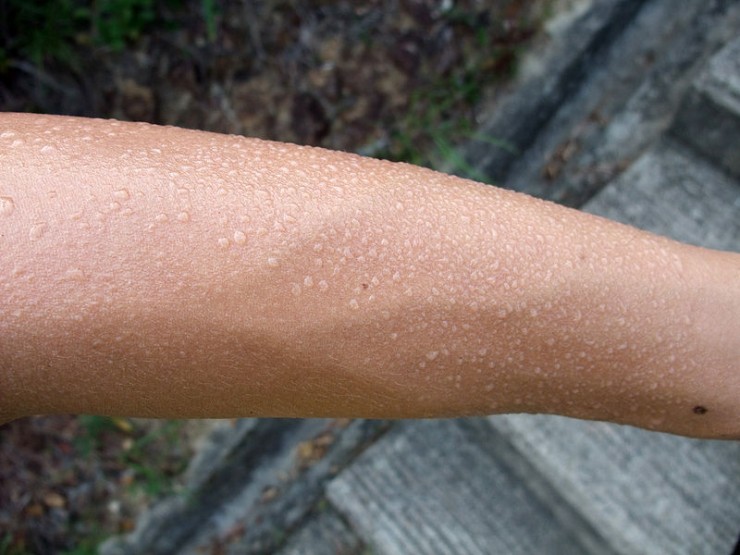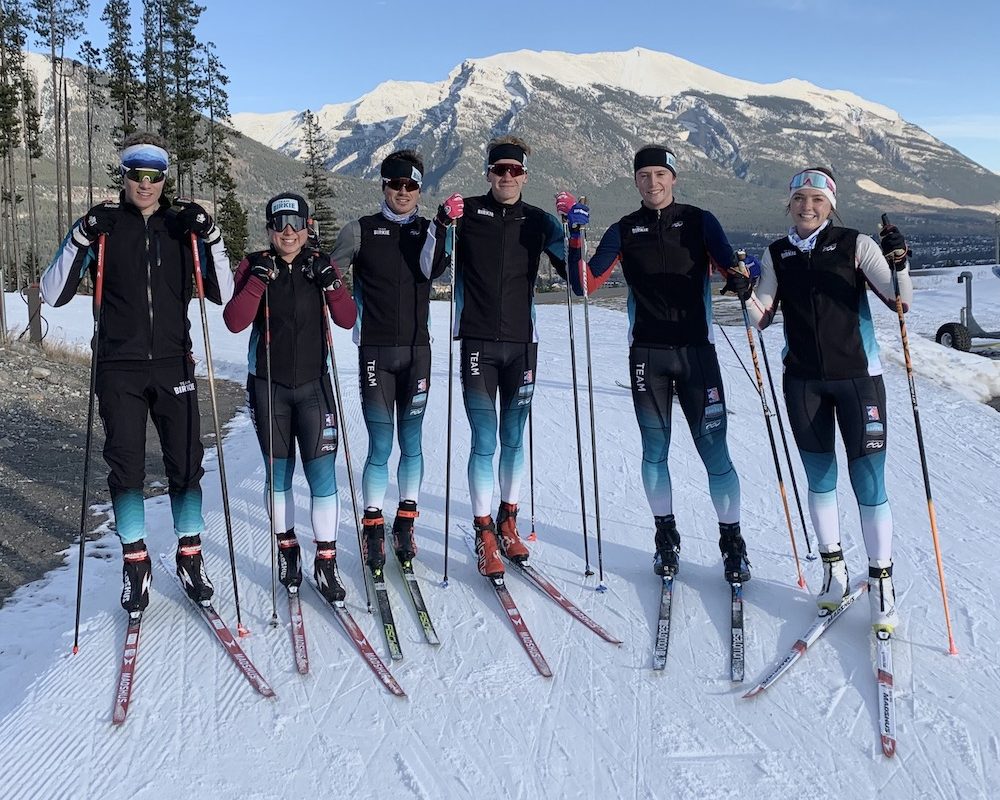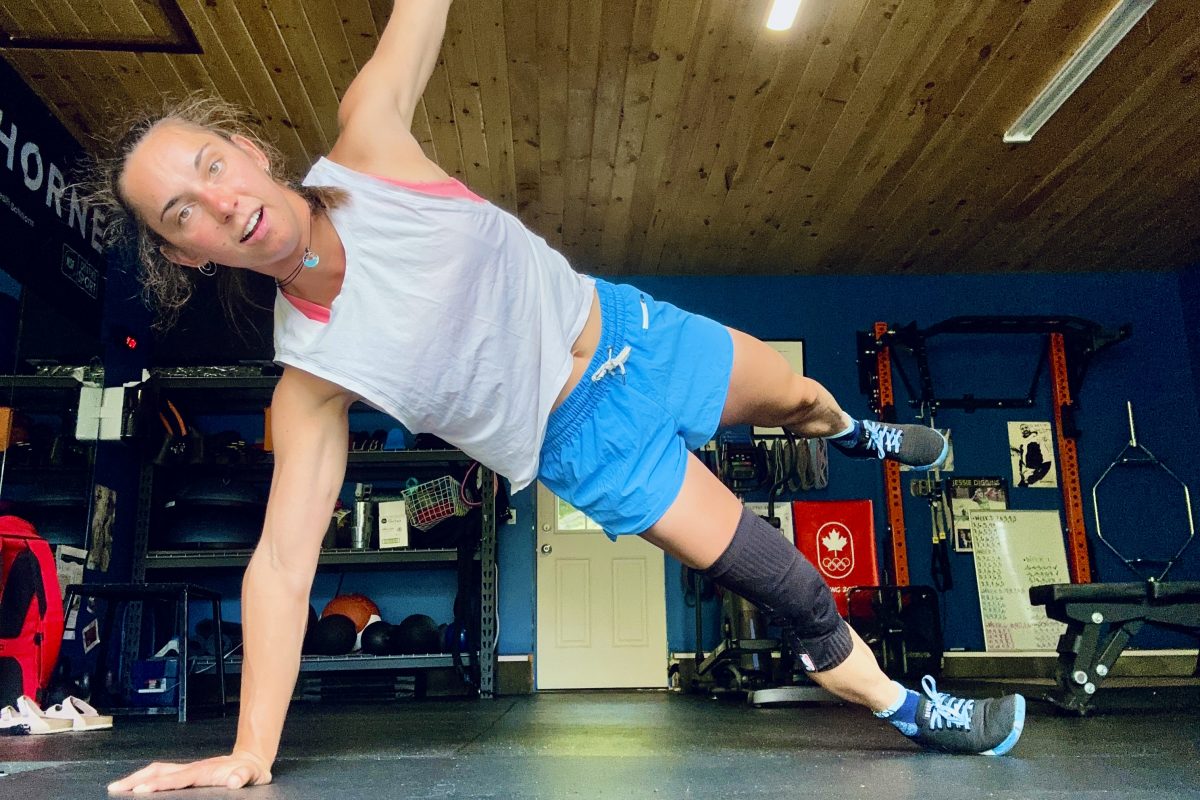
So it’s 85 degrees outside. Big deal, you think. I’ve run races on warmer days than that, I’ll probably have to compete in even hotter weather sooner than later.
You delay your run a little longer and it starts to drizzle outside. Perfect – now it’s going to cool off – so you wait even longer until it stops. By the time you step out for your one-hour jaunt, it’s about 87 degrees with a relative humidity of at least 90 percent. The Heat Index, or Real Feel, is in fact 109 degrees Fahrenheit, and you’re about to suffer.

Now is not the time to be a tough guy or gal. Take it easy out there, know your limits, and take care of yourself after.
Across the U.S., people from sea-level towns to high-elevation dwellings have been or are still in a heat wave. You wake up: it’s muggy. You go to bed: it’s muggier.
Day after day of this kind of weather can make it tough to keep with an outdoor training regimen, especially if you can’t get out first thing in the morning. But the reality is, heat bites – even if you’re a seasoned athlete who’s dealt with humidity for years.
So before you drag yourself to the nearest gym for an air-conditioned treadmill workout, consider the following to keep yourself safe during and after an outdoor session. Above all, rehydrate, refuel and rest to prevent major setbacks from something as simple as heat cramps (ouch!) to heatstroke (yikes!).
What’s the difference?
According to MayoClinic.com, heat cramps are painful muscle contractions, most commonly in the calves, quads (thighs) and abdominal muscles. If you’re waking up in the middle of the night with charley horses (painful muscle spasms in your legs), this could be the culprit. Be sure to replenish lost fluids after every workout with plenty of water (measure by your level of thirst) as well as electrolyte-enhanced sports drinks (i.e. Gatorade, G2, and Nuun).
Heat exhaustion can bring one’s body temperature to 104 degrees Fahrenheit (40 Celsius) and lead to heat stroke. Signs include nausea, vomiting, headache, fainting, weakness and cold, clammy skin.
As your body temperature rises, so does your heart rate and brain temperature, Runner’s World reports. “Your ability to assess your own body temperature will become difficult (runners often report feeling chilled or goosebumpy when they’re overheating). You can also start to lose control of body mechanics (your form and footing will get sloppy), and your mental abilities may start to break down (you may feel dizzy or disoriented).
Heatstroke is bad. According to MayoClinic, it’s a life-threatening emergency condition that occurs when your body temperature is greater than 104 F (40 C). Your skin may become hot and you might find yourself sweating uncontrollably (the body trying to cool itself), and you could become confused or irritable. If you’re showing some serious signs, it’s probably best to seek immediate attention to prevent brain damage, organ failure or even death.
So how can you stay cooler?
- Get out earlier or when the Heat Index (temperature combined with relative humidity) is lower.
- Stick to shaded paths, not “heat-absorbing roads,” Runner’s World advises.
- Stay near bodies of water (often cooler than inland)
- Alternate between harder and easier efforts (not so much intervals but normal pace broken up by extra recovery breaks)
- Wear a visor instead of a hat (your body releases heat through the head)
- Keep some distance between you and your training partners to keep from soaking up their body heat, says Runner’s World.
- Bring water and sports drinks for workouts lasting longer than an hour, and sip often (aim for every 15 minutes).
Alex Kochon
Alex Kochon (alexkochon@gmail.com) is a former FasterSkier editor and roving reporter who never really lost touch with the nordic scene. A freelance writer, editor, and outdoor-loving mom of two, she lives in northeastern New York and enjoys adventuring in the Adirondacks. She shares her passion for sports and recreation as the co-founder of "Ride On! Mountain Bike Trail Guide" and a sales and content contributor at Curated.com. When she's not skiing or chasing her kids around, Alex assists authors as a production and marketing coordinator for iPub Global Connection.



